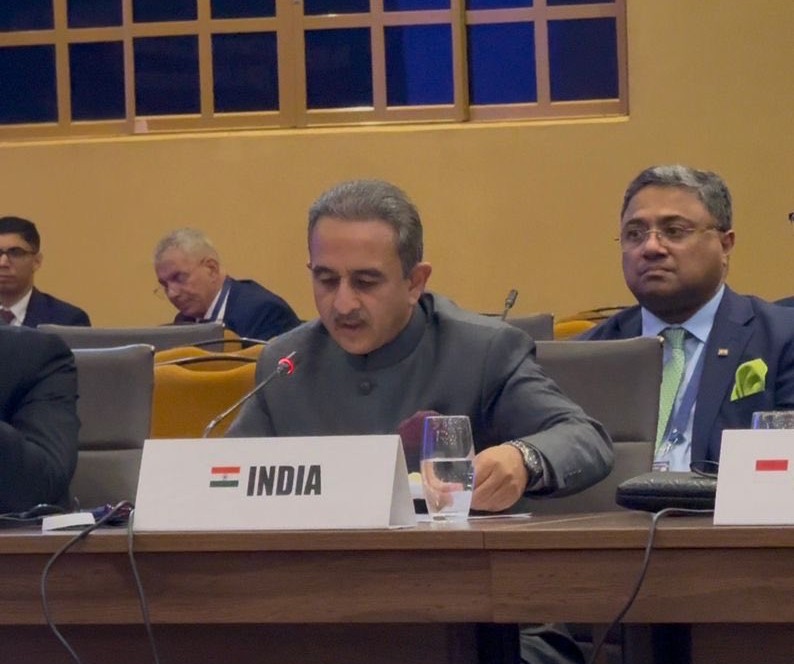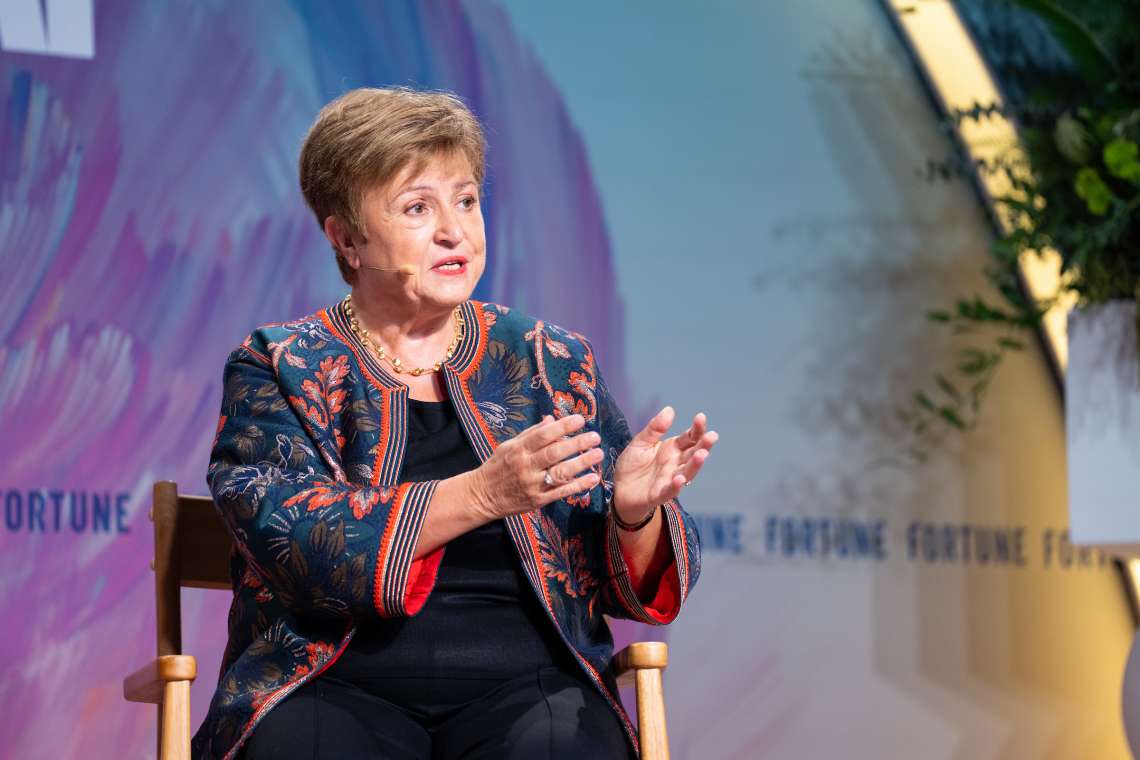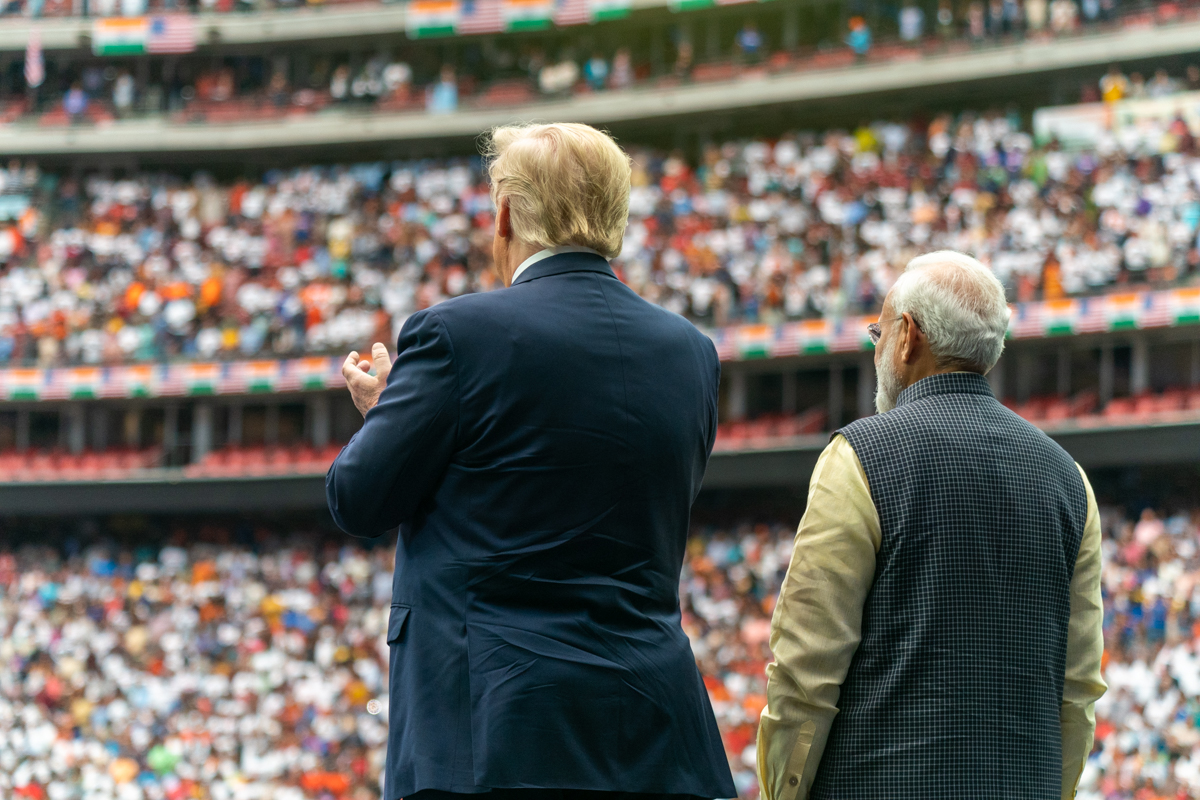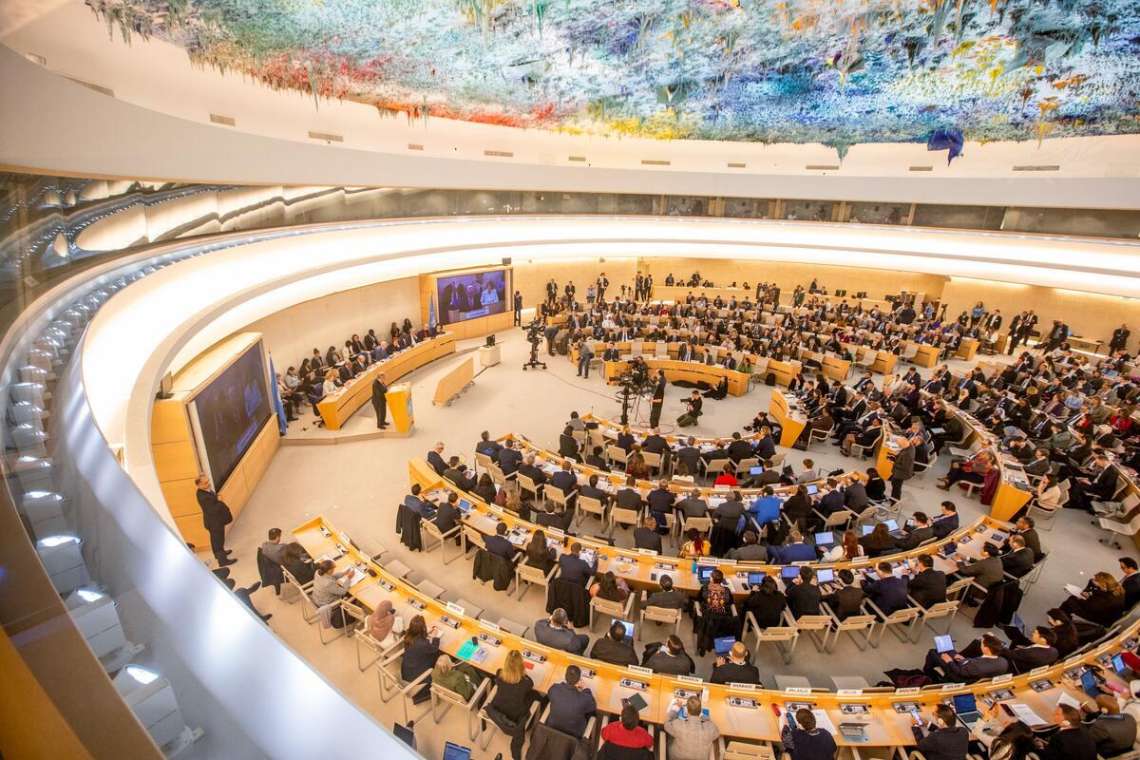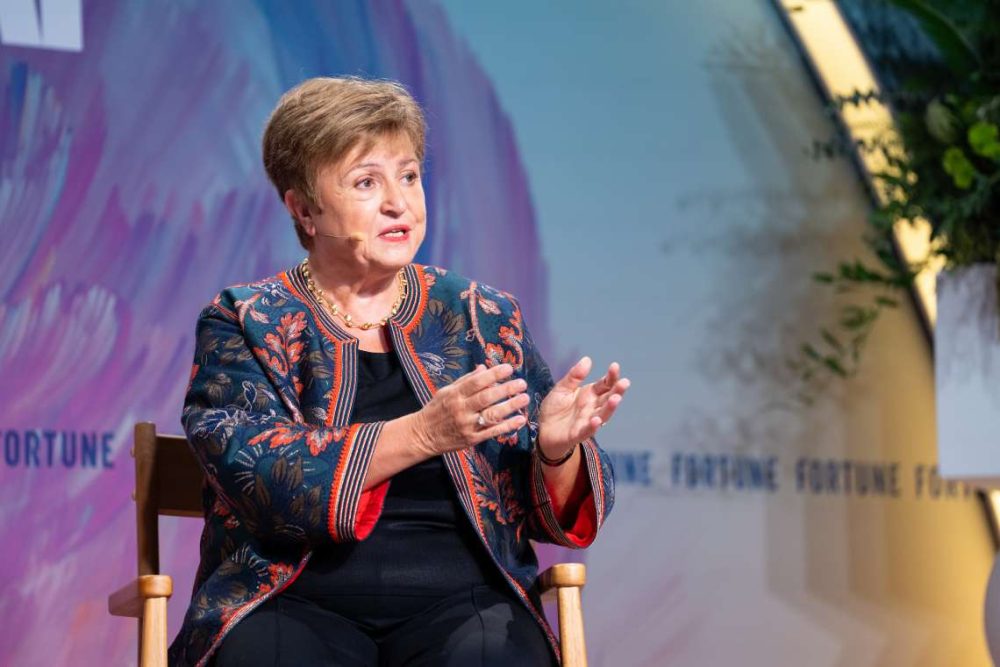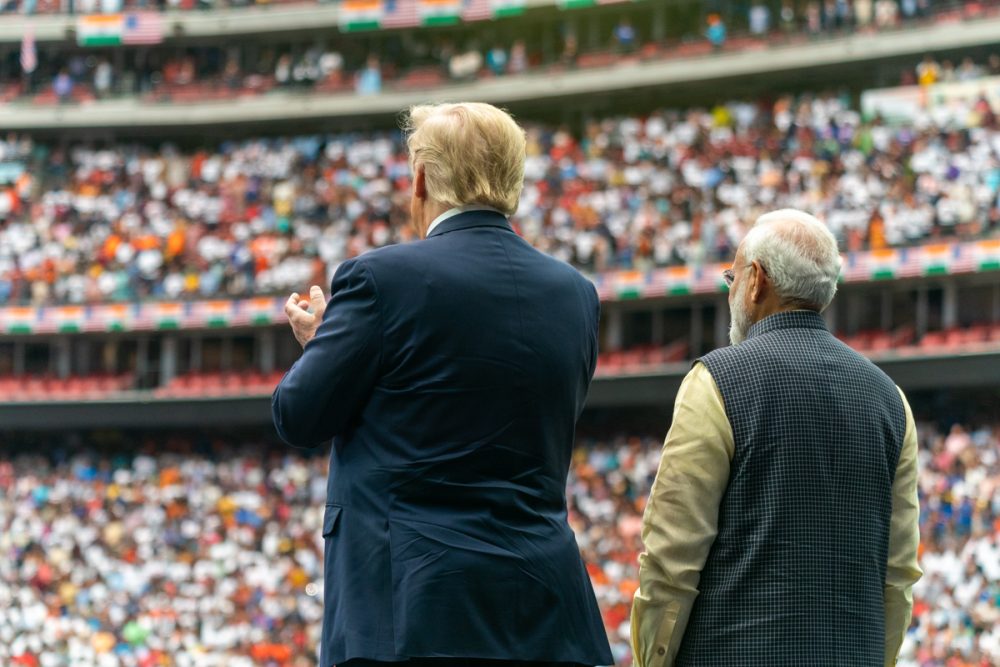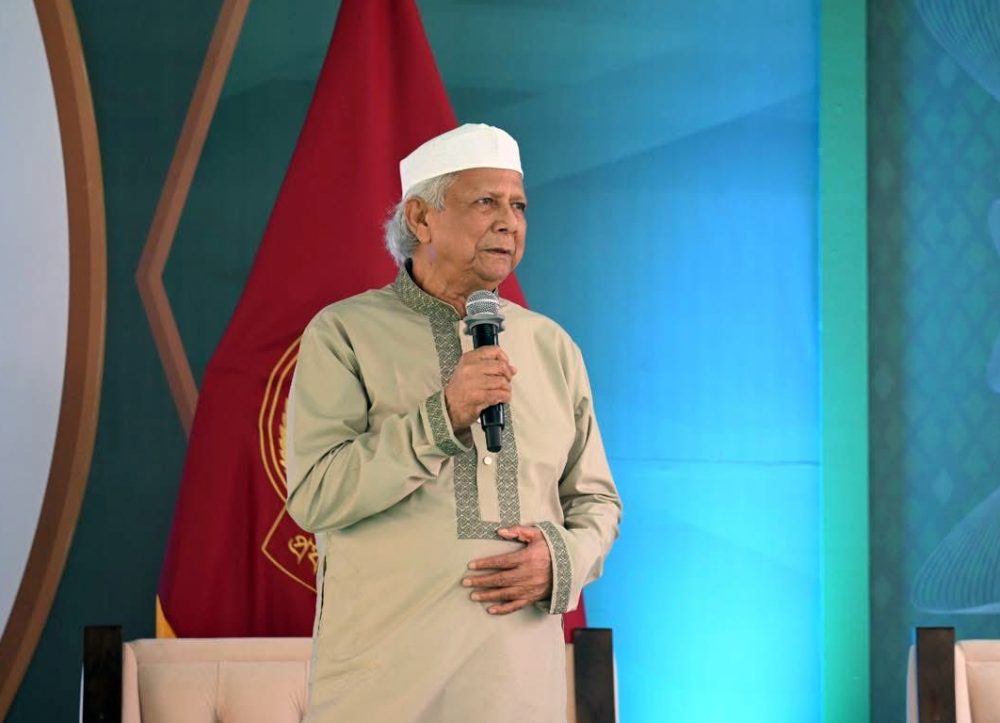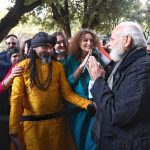At the NAM meeting in Kampala, India reaffirmed its enduring support for Palestine and the two-state solution, urging diplomacy, dialogue, and humanitarian aid to end Gaza’s suffering….reports Asian Lite News
India has reaffirmed its long-standing support for the Palestinian cause and the two-state solution during the Meeting of the Non-Aligned Movement (NAM) Ministerial Committee on Palestine, held on the sidelines of the 19th NAM Mid-Term Ministerial Meeting in Kampala, Uganda.
Addressing the gathering, Minister of State for External Affairs and Environment, Forest and Climate Change Kirti Vardhan Singh said India’s commitment to the Palestinian people’s inalienable rights remains “steadfast and historical,” reiterating that a peaceful, negotiated two-state solution is the only sustainable path to peace in the Middle East.
Singh began by thanking the NAM Chair for convening the meeting and recalled that the NAM Ministerial Committee on Palestine was first constituted under India’s Presidency during the NAM Summit in New Delhi in 1983 — a fact that, he said, “underscores the depth of India’s engagement with and commitment to the Palestinian question.”
Reflecting on developments since the Gaza war erupted on 7 October 2023, Singh said India’s position had been guided by its consistent principles of peace, dialogue, and humanitarian concern. “We condemned terrorism and have held that the destruction, despair, and suffering of civilians must end; Gaza must have access to food, fuel, and other necessities without hindrance; hostages must be released; and a ceasefire must be in place immediately,” he said.
India, he emphasised, has always stood for the legitimate rights of the Palestinian people. “As one of the first countries to recognise the State of Palestine, we reaffirm the inalienable rights of the Palestinian people to self-determination, national independence, and sovereignty,” Singh declared.
He reaffirmed that India continues to support a negotiated settlement between Israel and Palestine. “Our ultimate objective remains a negotiated two-state solution, which is the only path to achieve lasting peace and overall prosperity. The essential parameters are clear — a sovereign, independent, viable State of Palestine, living side by side in peace and security with Israel, within secure and recognised borders. Dialogue and diplomacy remain the best means to realise this,” he said.
Singh highlighted India’s practical commitment to Palestine through sustained development and humanitarian support. “India has sought to improve the daily lives of our Palestinian brothers and sisters through cooperation in health, education, institution-building, and women’s empowerment,” he noted.
Outlining recent assistance, he said that since October 2023, India had dispatched nearly 135 metric tonnes of medicines and relief supplies to Gaza. “These direct efforts are bolstered through our annual contribution of USD 5 million to UNRWA’s core budget. Projects worth USD 40 million are in the pipeline, aimed at education, health, and institutional capacity-building,” Singh added.
The Minister also referred to India’s participation in international peace efforts. “I was in Sharm el-Sheikh for the Peace Summit as the Special Envoy of the Prime Minister of India. India welcomes the agreement on the first phase of President Trump’s peace plan and commends the initiative and efforts of the US and President Trump,” he said, while lauding regional players for their mediation roles.
“In addition, we express appreciation to the leadership of two NAM members, Egypt and Qatar, for their instrumental role in realising the agreement. We hope that the first phase will serve as the initial step towards achieving lasting peace,” Singh said.
He stressed that this moment calls for restraint and responsibility from all sides. “It is important for peace and calm to hold. Everyone must honour their respective commitments. This could set the stage for subsequent follow-up steps,” he added.
Singh observed that the events since October 2023 had reshaped the regional dynamics in the Middle East and underscored the urgency of a lasting solution. “Innocent civilians have the right to lead normal lives. They cannot continue to remain deprived; they must not die due to conflict,” he said, noting that several international and regional initiatives were now “showing progress” under the UN framework.
Concluding his address, the Minister reiterated India’s readiness to play a constructive role in the peace process and strengthen its cooperation with NAM members. “Moving ahead, India is willing to contribute towards the vision of realising a peaceful and stable Middle East. We also pledge to continue working closely with our NAM partners in pursuit of this shared goal,” he said.
India’s reaffirmation of the two-state solution comes at a time when the Middle East remains deeply divided over the Gaza conflict, and NAM — founded on principles of anti-colonial solidarity and sovereignty — seeks to revive its traditional voice in shaping peace and justice in global affairs.
With this renewed statement, India positions itself once again as a voice of moderation, calling for peace through dialogue and standing firm on a principle it has upheld for decades — that the Palestinian question can only be resolved through mutual recognition, coexistence, and diplomacy.


